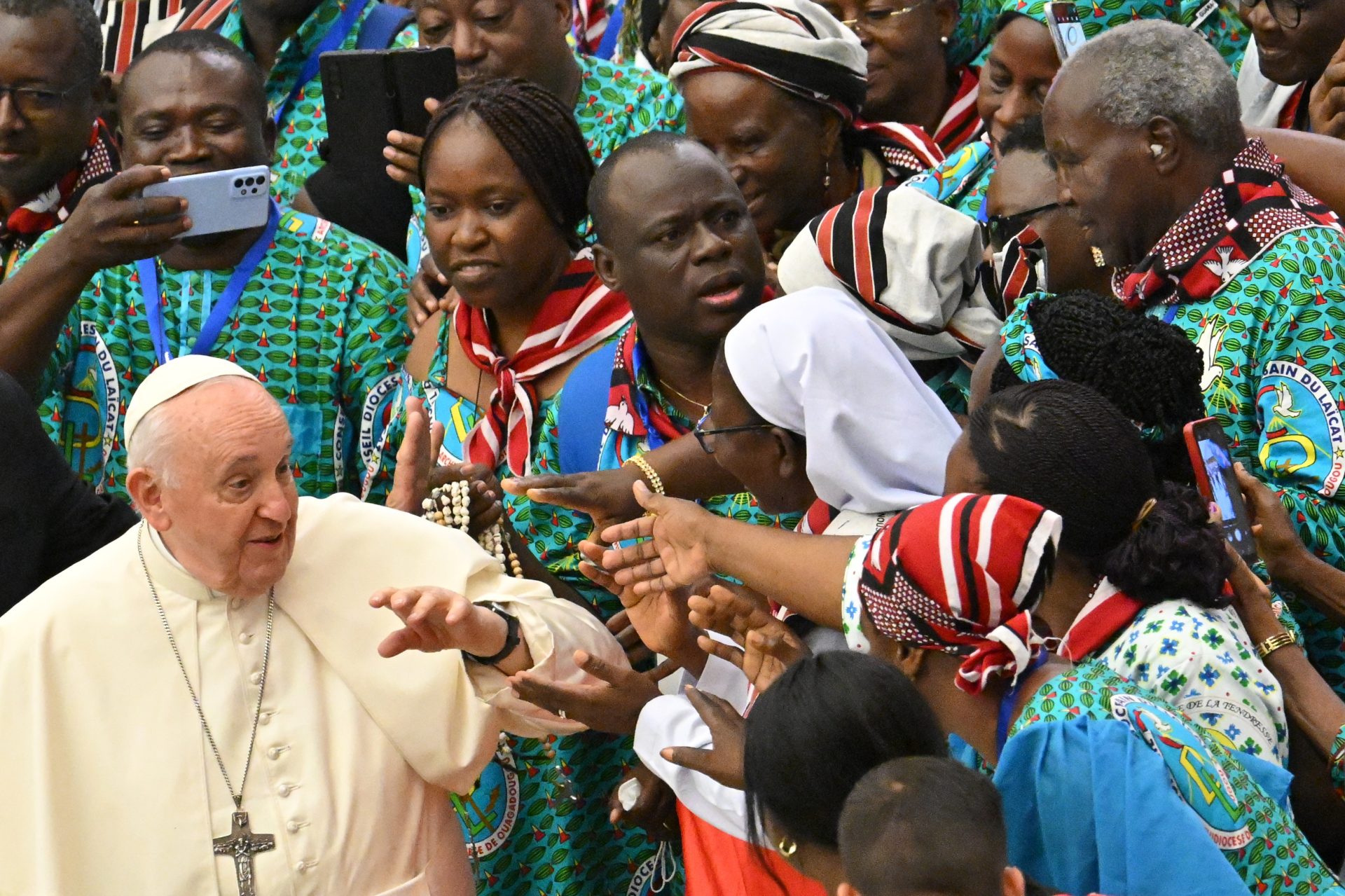Our Lady of Guadalupe proclaimed the Gospel in “mother tongue,” Pope Francis said Wednesday in a message that highlighted the important role mothers play in passing on the faith to the next generation.
In his catechesis on evangelization on Aug. 23, the pope spoke about how the apparition of Our Lady of Guadalupe in 1531 helped to spread the Gospel across the Americas, praising her as an inspired model of motherhood and inculturation.
“The Virgin of Guadalupe … appears dressed in the clothing of the native peoples, she speaks their language, she welcomes and loves the local culture. Mary is Mother, and under her mantle, every child finds a place. In her, God became flesh and, through Mary, he continues to incarnate himself in the lives of peoples,” Pope Francis said in his general audience in Paul VI Hall.
“Our Lady, in fact, proclaims God in the most suitable language, the mother tongue. And to us too Our Lady speaks in our mother tongue, the one we understand well. … And I would like to say thank you to the many mothers and grandmothers who pass the Gospel on to their children and grandchildren: faith is passed on with life; this is why mothers and grandmothers are the first evangelizers.”
When Our Lady of Guadalupe appeared to Juan Diego on Tepeyac Hill in Mexico City on Dec. 12, 1531, she told him: “Let nothing frighten you or trouble your heart: […] Am I not here, I who am your mother?”
Pope Francis highlighted this quote as an example of how the Virgin Mary always “consoles us, makes us go forward and thus allows us to grow, like a good mother who, while following in her son’s steps, launches him into the world’s challenges.”
“Our Lady always chooses those who are simple, on the Hill of Tepeyac in Mexico, as at Lourdes and Fatima: Speaking to them, she speaks to everyone, in a language suitable for all, comprehensible, like that of Jesus,” Francis said.
In the apparition on Dec. 9, Our Lady of Guadalupe entrusted Juan Diego with a mission to go to the bishop to ask him to build a church where she had appeared. Juan Diego was met with great difficulty when the bishop did not believe him and turned him away, the pope explained, making a joke about bishops.
“Here is the difficulty, the trial of proclamation: Despite zeal, the unexpected arrives, sometimes from the Church itself. To proclaim, in fact, it is not enough to bear witness to the good, it is necessary to know how to endure evil,” Pope Francis said.
“A Christian does good but endures evil. Both go together; life is like that. Even today, in so many places, inculturating the Gospel and evangelizing cultures requires constancy and patience, not being afraid of conflict, not losing heart. I am thinking of countries where Christians are persecuted because they are Christians and cannot practice their religion in peace.”
Pope Francis pointed out that it was the Blessed Virgin Mary who encouraged St. Juan Diego to persevere in this moment of trial. And his obedience to her message led to the miraculous image on his tilma that can be seen today in the Basilica of Our Lady of Guadalupe in Mexico City, a shrine that receives more than 10 million pilgrims each year.
The Virgin Mary asked Juan Diego to go to the arid hilltop to pick flowers, he explained. “It was winter, but, nevertheless, Juan Diego found some beautiful flowers, put them in his cloak, and offered them to the Mother of God, who invited him to take them to the bishop as proof.”
“He goes, waits his turn patiently, and finally, in the presence of the bishop, opened his tilma … to show the flowers — and behold! The image of Our Lady appeared on the fabric of the cloak, the extraordinary and living image that we are familiar with.”
“This is God’s surprise. When there is willingness and obedience, he can accomplish something unexpected, at the time and in ways we cannot foresee. And so, the shrine requested by the Virgin was built.”
Pope Francis underscored the importance of Marian shrines and pilgrimage destinations, like the Shrine of Our Lady of Guadalupe, as places where the Gospel continues to be proclaimed today.
“We need to go to these oases of consolation and mercy, where faith is expressed in a maternal language; where we lay down the labors of life in Our Lady’s arms and return to life with peace in our hearts, perhaps with the peace of children,” Pope Francis said.







